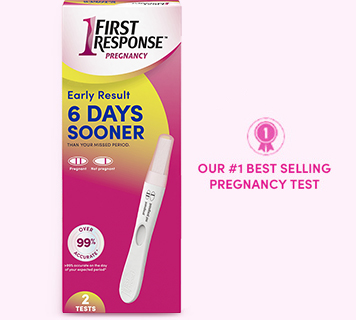
You’ve likely encountered pregnancy tests at the pharmacy or seen them advertised, and perhaps you've even used one before. But have you ever wondered about the science behind how these tests determine if you're expecting?
Pregnancy tests function by detecting a hormone called human chorionic gonadotropin (hCG) in urine. This hormone is produced by a woman’s body upon pregnancy, entering her bloodstream and eventually appearing in her urine.
Among the various types of pregnancy tests available, the urine test, often used at home with a pregnancy test kit, is the most common. These kits are available at pharmacies, grocery stores, online retailers, convenience stores, and health clinics, providing convenience for individuals seeking testing options.
Urine pregnancy tests detect the presence of hCG in your urine, typically using a test strip or a plastic stick with an absorbent tip. To use a urine pregnancy test, you either hold the absorbent tip under your urine stream or collect a urine sample in a clean container and then dip the test strip or stick it into the urine.
It's crucial to carefully follow the instructions provided with the pregnancy test kit to ensure accurate results. Additionally, timing is essential; taking the test too early may impact its ability to accurately detect the small amount of hCG. Pregnancy tests are generally 99% accurate from the day of a missed period.
What is Human Chorionic Gonadotropin (hCG)?
During the earliest stages of conception, significant changes occur within your body. Among the first signs of pregnancy is the production of human chorionic gonadotropin (hCG), detectable in both blood and urine. Deemed "the pregnancy hormone," hCG is a hormone produced by cells forming the placenta upon implantation during pregnancy. It can be detected in urine or blood approximately 9 days after conception in a normal 28-day cycle. hCG levels peak towards the end of the first trimester and then decline for the remainder of pregnancy. Healthcare providers utilize hCG measurements to validate pregnancy, while at-home pregnancy tests detect hCG in urine.
How Does a Pregnancy Test Work to Detect Hormones in Urine?
The concentration of hCG in your body increases rapidly, doubling every 36 to 48 hours as your pregnancy progresses, reaching its peak at eight to ten weeks. At-home pregnancy tests operate by detecting the presence of hCG in your urine. When your urine meets the strip on a pregnancy test stick, results appear within minutes, indicating whether hCG, the pregnancy hormone, has been detected.
The specific process by which pregnancy test kits detect the hCG hormone may vary slightly depending on the brand and type of test. However, the fundamental principle remains consistent: the presence of hCG enables molecular interactions within the test strip’s chemistry, leading to a positive result. Conversely, the absence of hCG prevents these interactions, resulting in a negative result. Most tests feature a results window where, after a few minutes of contact with your urine, two lines or a plus sign indicate pregnancy, while a single line or minus sign indicates no pregnancy.
How Do Early Pregnancy Tests Work?
If you’re eager to know how soon you can take a pregnancy test, some at-home pregnancy kits may not detect hCG in urine until at least the first day of a missed period. To get early results, First Response™ Early Result Pregnancy Test offers testing 6 days sooner than the day of your missed period1. And, for easy-to-read, unmistakable “YES+ / NO-” results in words, also try the First Response™ Digital Pregnancy Test .
Pregnancy is a life-changing event. Knowing if you are pregnant earlier allows you to make important decisions, such as adopting healthier lifestyle choices. You can begin taking better care of yourself and your baby sooner, in the first critical stages of your baby's development.
Now that you know how pregnancy tests work, you can see how this simple, yet amazing technology has helped women, and their partners get early and accurate pregnancy news for years. For more help during your pregnancy journey, visit the First Response Pregnancy Hub .


